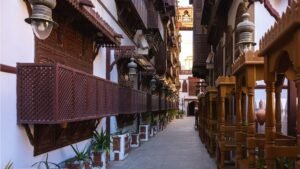The mosque of Abdullah ibn Abbas Radi Allahu anhu in Taif
Recently I visited Ta’if. I was fortunate enough to visit the mosque of Abdullah ibn Abbas radi allahu. Here are some other places I visited in Ta’if
Who was Abdullah Ibn Abbas radi allahu anhu?
Abdullah Ibn Abbas radi allahu anhu was a sahabi. He was the companion of Rasul Allah Sallalahu alaihe wa sallam. He was the paternal cousin of the Prophet (S.A.W.) and maternal cousin of Khalid Bin Waleed (R.A.).He was the son of Abbas ibn Abd al-Muttalib, an uncle of Muhammad, and a nephew of Maymunah bint al-Harith, the wife of Rasul Allah sallalahu alaihe wa sallam.(1)
هو صحابي محدث وفقيه وحافظ ومُفسِّر
He was a companion of Rasul Allah sallalahu alaihe wa sallam , a scholar, jurist, and commentator of Quran. He is considered to be the greatest mufassir of the Qur’an.
“I have never seen anyone like Ibn Abbas. He passed away on a day when truly, he was the ink of this Ummah (community).”
—Mujahid ibn Jabr
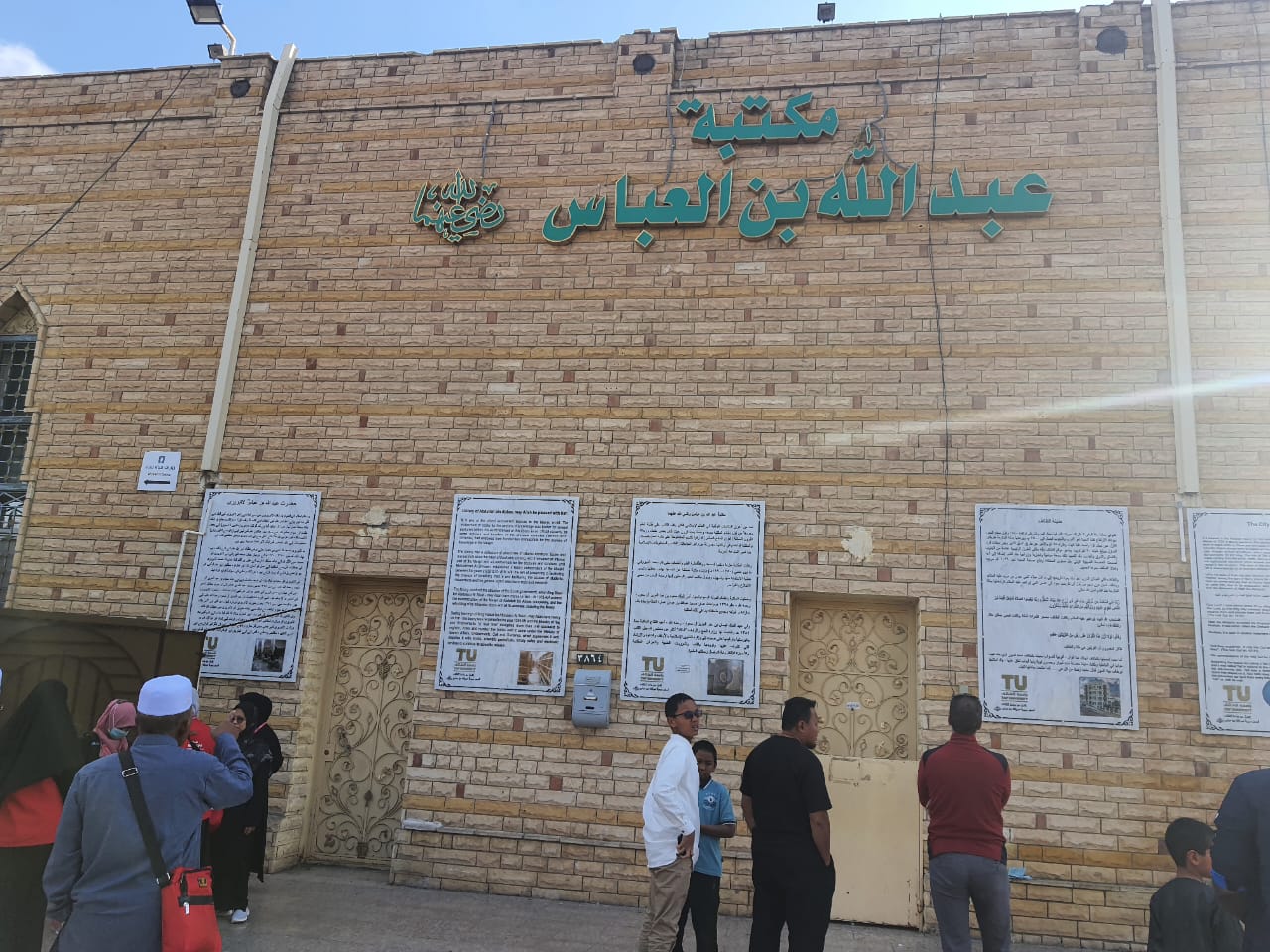
How many hadith did Abdullah ibn Abbas Radi Allahu anhu narrate?
He was one of the Mukassireen hadith , as he narrated 1660 hadiths
Ibn Abbas sought knowledge and hadith from the companions. He recited the Quran to Zaid ibn Thabit and Ubayy ibn Ka’b. He would inquire about a single matter from thirty companions. Ibn Abbas had a large gathering in the city where people came to seek knowledge. He organized his sessions into days and lessons, dedicating one day to jurisprudence, another day to Quranic interpretation, a day for military expeditions, a day for poetry, and a day for the traditions of the Arabs. He narrated approximately 1660 hadiths, with 75 of them agreed upon as authentic in the Sahih collections. Al-Bukhari uniquely attributed 110 hadiths to him, while Muslim ibn al-Hajjaj singled out 49 hadiths.
His Nasab:
عبد الله بن العباس بن عبد المطلب بن هاشم بن عبد مناف بن قصي بن كلاب بن مرة بن كعب بن لؤي بن غالب، بن فهر بن مالك بن النضر وهو قريش بن كنانة بن خزيمة بن مدركة بن إلياس بن مضر بن نزار بن معد بن عدنان. أبوه العباس
He is Abdullah, the son of Al-Abbas, the son of Abdul-Muttalib, the son of Hashim, the son of Abd Manaf, the son of Qusay, the son of Kilab, the son of Murrah, the son of Ka’b, the son of Lu’ay, the son of Ghalib, the son of Fihr, the son of Malik, the son of Al-Nazr, the son of Ma’ad, the son of Adnan.
He shares lineage with the Prophet through Abdul-Muttalib, the son of Hashim.
His immigration
He was born in Mecca three years before Hijrah. He immigrated with his father , Abbas bin Abdul Muttalib, before the conquest of Mecca.
How long did Abdullah ibn Abbas stayed with Prophet Muhammad Sallalahu alaihe wa sallam
Upon his migration, he joined Prophet Muhammad, closely learning from him. His association with the Prophet spanned around thirty months. His familial ties with the Prophet played a significant role, as his aunt, Maimuna bint al-Harith, was married to the Prophet. Ibn Abbas would frequent the Prophet’s residence, spend nights in his aunt’s quarters, and actively serve the Prophet. He meticulously relayed the Prophet’s actions and words to the companions.
During one instance at Maimuna radi allahu anha’s house, when Abdullah ibn Abbas helped RAsul Allah perform the ablution,Prophet Sallalahu alaihe wa sallam prayed, ‘O Allah, grant him comprehension of the religion and teach him interpretation.’ The Prophet embraced him, supplicating, ‘O Allah, instruct him in the Book.’
اللهم فقِّهْهُ في الدينِ وعلِّمْهُ التأويلَ
اللَّهُمَّ عَلِّمْهُ الْكِتَابَ
Ibn Abbas recounted witnessing the جبريل عليه السلام Gabriel Alaihe salam twice at the Prophet (SAW)’s abode and mentioned that the Prophet prayed for him, invoking wisdom, on two separate occasions.
Throughout Rasul Allah’s illness, impending death, and passing, Ibn Abbas remained by his side. He vividly described the Prophet’s final days, his resurgence from illness for prayer and sermon, the circumstances surrounding the Prophet’s death, the process of his ritual washing, the funeral prayer, and the subsequent events among the companions. Prophet Muhammad (SAW) passed away when Ibn Abbas ra was either thirteen, ten, or fifteen years old, contingent on varying sources and discrepancies in his birth year. Nonetheless, all sources concur that he had undergone circumcision and had reached the age of puberty.
Abdullah ibn Abbas, towards the end of his life, faced blindness. He used to say:
إِن يَأخُذِ اللَهُ مِن عَينَيَّ نورَهُما فَفي لِساني وَقَلبي مِنهُما نورُ
قَلبٌ ذَكِيٌّ وَعَقلٌ غَرُ ذي دَخَلٍ وَفي فَمي صارِمٌ كَالسَيفِ مَأثورُ
‘If Allah takes away the light from my eyes,Still, in my tongue and heart, their radiance lies.
With a smart heart and a bewildering mind, In my mouth, like a sword, firm words you’ll find.’
Ibn Abbas passed away in Taif in the year 68 Hijri at the age of seventy-one. When he was laid to rest, a white bird, unlike any seen before, approached. It entered his burial shroud and circled around, participating in the burial. A miraculous incident occurred as they heard a voice from his grave reciting: ‘O tranquil soul, return to your Lord pleased and pleasing. Enter among My servants and enter My paradise.’ This was reported by Ahmad ibn Hanbal, Al-Waqidi, Ibn Asakir, and Ibn Hajar al-Asqalani.
﴿يَا أَيَّتُهَا النَّفْسُ الْمُطْمَئِنَّةُ ٢٧ ارْجِعِي إِلَى رَبِّكِ رَاضِيَةً مَرْضِيَّةً ٢٨
فَادْخُلِي فِي عِبَادِي ٢٩ وَادْخُلِي جَنَّتِي ٣٠
The people of Taif believe that the grave of Ibn Abbas is situated in front of the martyrs’ cemetery, next to the Abdullah ibn Abbas Mosque in Taif. It is on the opposite side of the women’s prayer area. Next to his grave is the tomb of Muhammad ibn al-Hanafiyya. Researcher Issa Alawi Al-Qaseer states, “Ibn Abbas’s grave had a green coffin, a green curtain, and an iron grille, similar to those found in the mosques of Medina.”
His Knowledge:
Ibn Abbas had a large gathering in Medina where people would come to seek knowledge. His contemporaries praised his method of speech and his ability to captivate the hearts and minds of his listeners. Sa’sa’a ibn Sauhan said, “He takes three and leaves three: he takes the hearts of men when he speaks, the beauty of listening when he is spoken to, and the easier of the two matters when he is questioned. He avoids arguing, comparing the despicable, and what requires an apology.”
Ibn Abbas would dedicate specific days to different subjects in his gatherings. One day would be devoted to jurisprudence, another to interpretation (of the Quran), another to historical events (such as battles), and another to poetry. Abu Salih al-Saman described Ibn Abbas’s gathering, saying:
“I saw people gathering until the road became narrow, and no one could enter or leave. I entered and informed him of the situation at his door. He told me, ‘Prepare ablution for me.’ I did, and he performed ablution and sat down. He said, ‘Go out and tell them that anyone who wants to ask about the Quran, its letters, and what is intended by it should enter.’ I went out and announced, and they entered until the house and the room were filled.
They asked him about anything, and he answered and gave them more than they asked for. Then he said, ‘Your brothers, go out.’ They went out. He said, ‘Go out and tell them that anyone who wants to ask about the interpretation of the Quran should enter.’ I went out and announced, and they entered until the house and the room were filled.
They asked him about anything, and he answered and gave them more than they asked for. Then he said, ‘Your brothers, go out.’ They went out. He said, ‘Go out and tell them that anyone who wants to ask about what is lawful and unlawful, and jurisprudence, should enter.’ I went out and announced, and they entered until the house and the room were filled. They asked him about anything, and he answered and gave them more than they asked for.
Then he said, ‘Your brothers, go out.’ They went out. He said, ‘Go out and tell them that anyone who wants to ask about the obligations and the like should enter.’ I went out and announced, and they entered until the house and the room were filled. They asked him about anything, and he answered and gave them more than they asked for. Then he said, ‘Your brothers, go out.’ They went out.
He said, ‘Go out and tell them that anyone who wants to ask about the Arabic language, poetry, and anything foreign in speech should enter.’ I went out and announced, and they entered until the house and the room were filled. They asked him about anything, and he answered and gave them more than they asked for. Abu Salih said, ‘If all of Quraysh were to be proud of something, it would be this.’ I have never seen anything like this from anyone among the people.”
I visited the mosque of Abdullah Ibn Abbas Radi allahu anhu. Masha Allah it is a beautiful mosque. It has been restored and reconstructed and watch out the floor because the tiles are slippery.
The mosque has in its vicinity, Abdullah Ibn Abbas radi Allahu anhu’s grave, Muhammad Ibn HAnafiya’s grave and grave of 11 sahaba shaheed in battle of hunain.
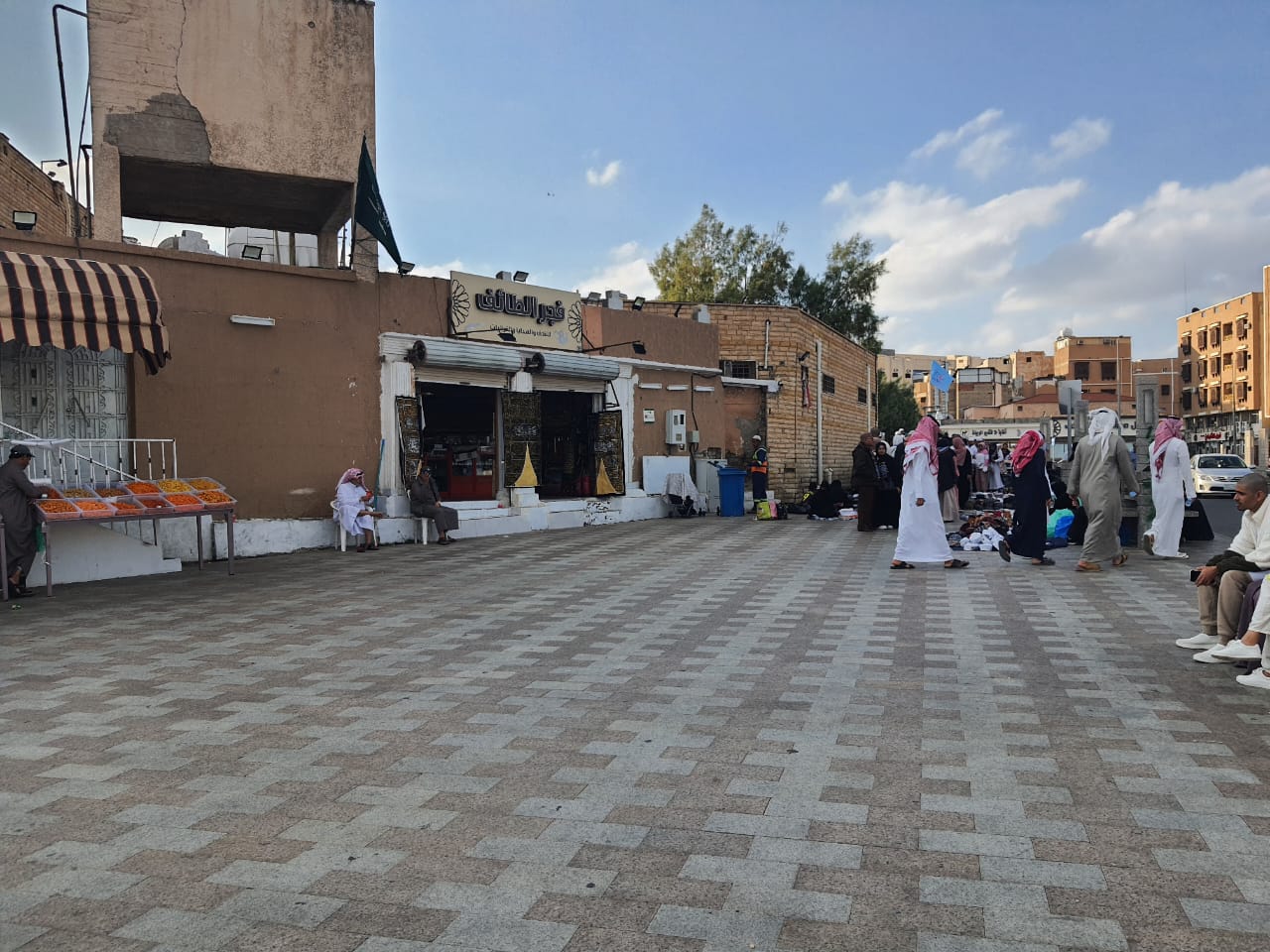
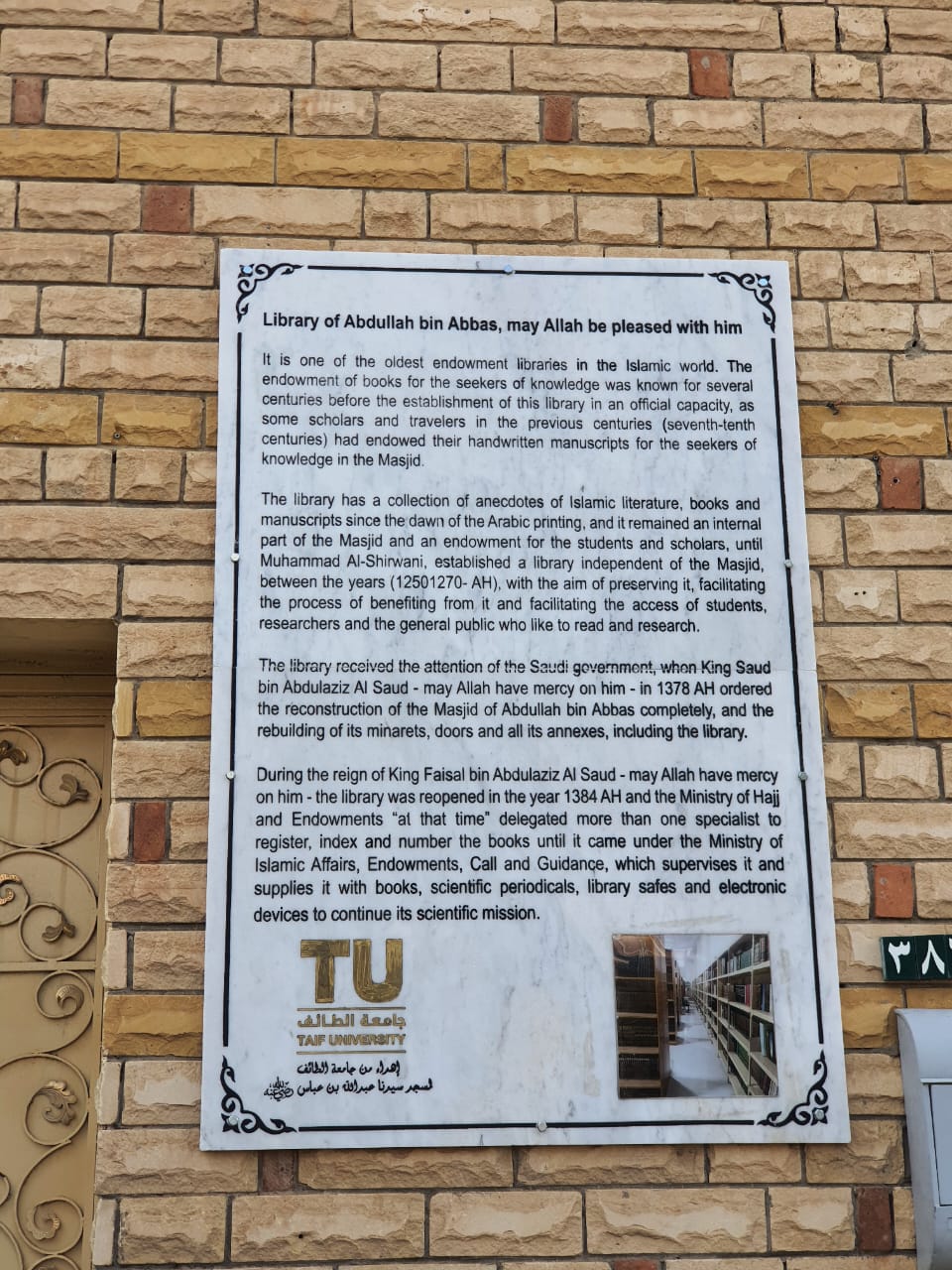
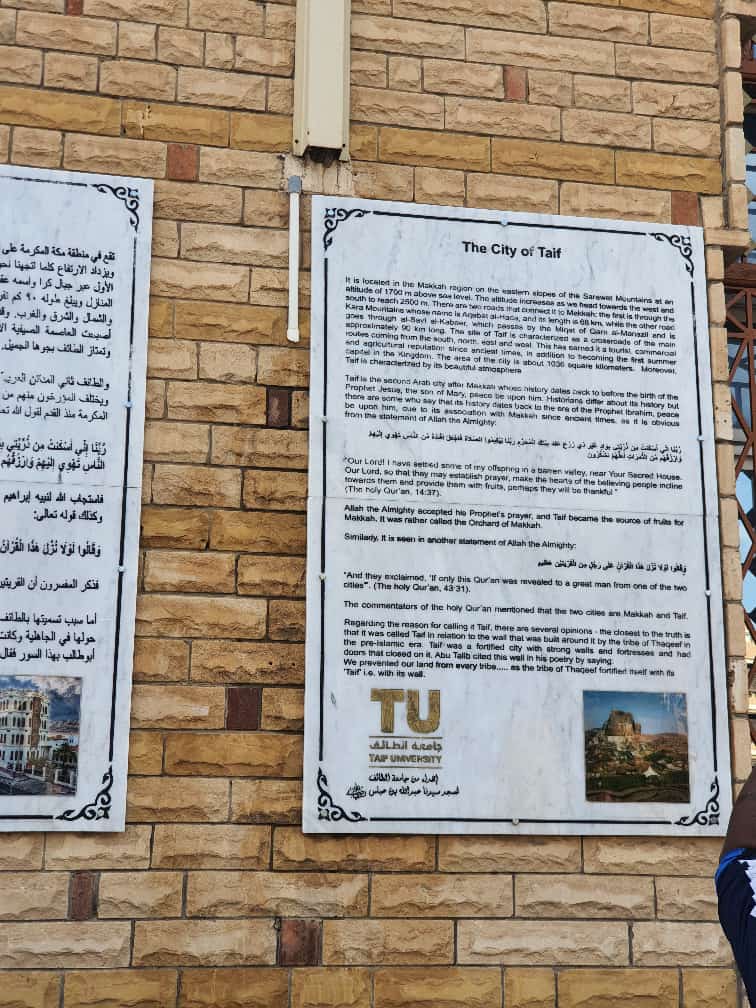
Some Hadith narrated by Abdullah Ibn Abbas Radi Allahu anhu
- It was narrated from ‘Abdullah bin ‘Abbas that the Prophet said: “‘Umra is permissible.”
أَخْبَرَنِي زَكَرِيَّا بْنُ يَحْيَى، قَالَ حَدَّثَنَا زَيْدُ بْنُ أَخْزَمَ، قَالَ أَنْبَأَنَا مُعَاذُ بْنُ هِشَامٍ، قَالَ حَدَّثَنِي أَبِي، عَنْ قَتَادَةَ، قَالَ حَدَّثَنَا عَمْرُو بْنُ دِينَارٍ، عَنْ طَاوُسٍ، عَنِ الْحَجُورِيِّ، عَنْ عَبْدِ اللَّهِ بْنِ عَبَّاسٍ، عَنِ النَّبِيِّ صلى الله عليه وسلم قَالَ “ الْعُمْرَى جَائِزَةٌ ” .
Sunan an-Nasa’i 3724
2. Narrated `Abdullah bin `Abbas:During the lifetime of Allah’s Messenger (ﷺ) the moon was split (into two places).
حَدَّثَنَا عُثْمَانُ بْنُ صَالِحٍ، حَدَّثَنَا بَكْرُ بْنُ مُضَرَ، قَالَ حَدَّثَنِي جَعْفَرُ بْنُ رَبِيعَةَ، عَنْ عِرَاكِ بْنِ مَالِكٍ، عَنْ عُبَيْدِ اللَّهِ بْنِ عَبْدِ اللَّهِ بْنِ عُتْبَةَ بْنِ مَسْعُودٍ، عَنْ عَبْدِ اللَّهِ بْنِ عَبَّاسٍ ـ رضى الله عنهما أَنَّ الْقَمَرَ، انْشَقَّ عَلَى زَمَانِ رَسُولِ اللَّهِ صلى الله عليه وسلم.
Sahih al-Bukhari 3870
3.Narrated Abdullah ibn Abbas:The Prophet (ﷺ) said: The best of you are those whose shoulders are soft in prayer.
حَدَّثَنَا ابْنُ بَشَّارٍ، حَدَّثَنَا أَبُو عَاصِمٍ، حَدَّثَنَا جَعْفَرُ بْنُ يَحْيَى بْنِ ثَوْبَانَ، قَالَ أَخْبَرَنِي عَمِّي، عُمَارَةُ بْنُ ثَوْبَانَ عَنْ عَطَاءٍ، عَنِ ابْنِ عَبَّاسٍ، قَالَ قَالَ رَسُولُ اللَّهِ صلى الله عليه وسلم “ خِيَارُكُمْ أَلْيَنُكُمْ مَنَاكِبَ فِي الصَّلاَةِ ” . قَالَ أَبُو دَاوُدَ جَعْفَرُ بْنُ يَحْيَى مِنْ أَهْلِ مَكَّةَ .
Sunan Abi Dawud 672
4.Narrated Abdullah ibn Abbas:The Prophet (ﷺ) said: Do not pray behind a sleeping or a talking person.
حَدَّثَنَا عَبْدُ اللَّهِ بْنُ مَسْلَمَةَ الْقَعْنَبِيُّ، حَدَّثَنَا عَبْدُ الْمَلِكِ بْنُ مُحَمَّدِ بْنِ أَيْمَنَ، عَنْ عَبْدِ اللَّهِ بْنِ يَعْقُوبَ بْنِ إِسْحَاقَ، عَمَّنْ حَدَّثَهُ عَنْ مُحَمَّدِ بْنِ كَعْبٍ الْقُرَظِيِّ، قَالَ قُلْتُ لَهُ – يَعْنِي لِعُمَرَ بْنِ عَبْدِ الْعَزِيزِ – حَدَّثَنِي عَبْدُ اللَّهِ بْنُ عَبَّاسٍ أَنَّ النَّبِيَّ صلى الله عليه وسلم قَالَ “ لاَ تُصَلُّوا خَلْفَ النَّائِمِ وَلاَ
Sunan Abi Dawud 694
5. Narrated Abdullah ibn Abbas:The Prophet (ﷺ) named the two prostrations of forgetfulness disgraceful for the devil.
حَدَّثَنَا مُحَمَّدُ بْنُ عَبْدِ الْعَزِيزِ بْنِ أَبِي رِزْمَةَ، أَخْبَرَنَا الْفَضْلُ بْنُ مُوسَى، عَنْ عَبْدِ اللَّهِ بْنِ كَيْسَانَ، عَنْ عِكْرِمَةَ، عَنِ ابْنِ عَبَّاسٍ، أَنَّ النَّبِيَّ صلى الله عليه وسلم سَمَّى سَجْدَتَىِ السَّهْوِ الْمُرْغِمَتَيْنِ .
Sunan Abi Dawud 1025
6.Narrated Abdullah ibn Abbas:The Prophet (ﷺ) said: Islam does not allow for failure to perform the hajj.
حَدَّثَنَا عُثْمَانُ بْنُ أَبِي شَيْبَةَ، حَدَّثَنَا أَبُو خَالِدٍ، – يَعْنِي سُلَيْمَانَ بْنَ حَيَّانَ الأَحْمَرَ – عَنِ ابْنِ جُرَيْجٍ، عَنْ عُمَرَ بْنِ عَطَاءٍ، عَنْ عِكْرِمَةَ، عَنِ ابْنِ عَبَّاسٍ، قَالَ قَالَ رَسُولُ اللَّهِ صلى الله عليه وسلم “ لاَ صَرُورَةَ فِي الإِسْلاَمِ ” .
Sunan Abi Dawud 1729
7.Narrated Abdullah ibn Abbas:The Prophet (ﷺ) said: He who intends to perform hajj should hasten to do so.
حَدَّثَنَا مُسَدَّدٌ، حَدَّثَنَا أَبُو مُعَاوِيَةَ، مُحَمَّدُ بْنُ خَازِمٍ عَنِ الأَعْمَشِ، عَنِ الْحَسَنِ بْنِ عَمْرٍو، عَنْ مِهْرَانَ أَبِي صَفْوَانَ، عَنِ ابْنِ عَبَّاسٍ، قَالَ قَالَ رَسُولُ اللَّهِ صلى الله عليه وسلم “ مَنْ أَرَادَ الْحَجَّ فَلْيَتَعَجَّلْ ” .
Sunan Abi Dawud 1732
8.Narrated Abdullah ibn Abbas: The Messenger of Allah (ﷺ) prohibited to provoke the beasts for fighting.
حَدَّثَنَا مُحَمَّدُ بْنُ الْعَلاَءِ، أَخْبَرَنَا يَحْيَى بْنُ آدَمَ، عَنْ قُطْبَةَ بْنِ عَبْدِ الْعَزِيزِ بْنِ سِيَاهٍ، عَنِ الأَعْمَشِ، عَنْ أَبِي يَحْيَى الْقَتَّاتِ، عَنْ مُجَاهِدٍ، عَنِ ابْنِ عَبَّاسٍ، قَالَ نَهَى رَسُولُ اللَّهِ صلى الله عليه وسلم عَنِ التَّحْرِيشِ بَيْنَ الْبَهَائِمِ .
Sunan Abi Dawud 2562
Discover more from Islam Hashtag
Subscribe to get the latest posts sent to your email.


